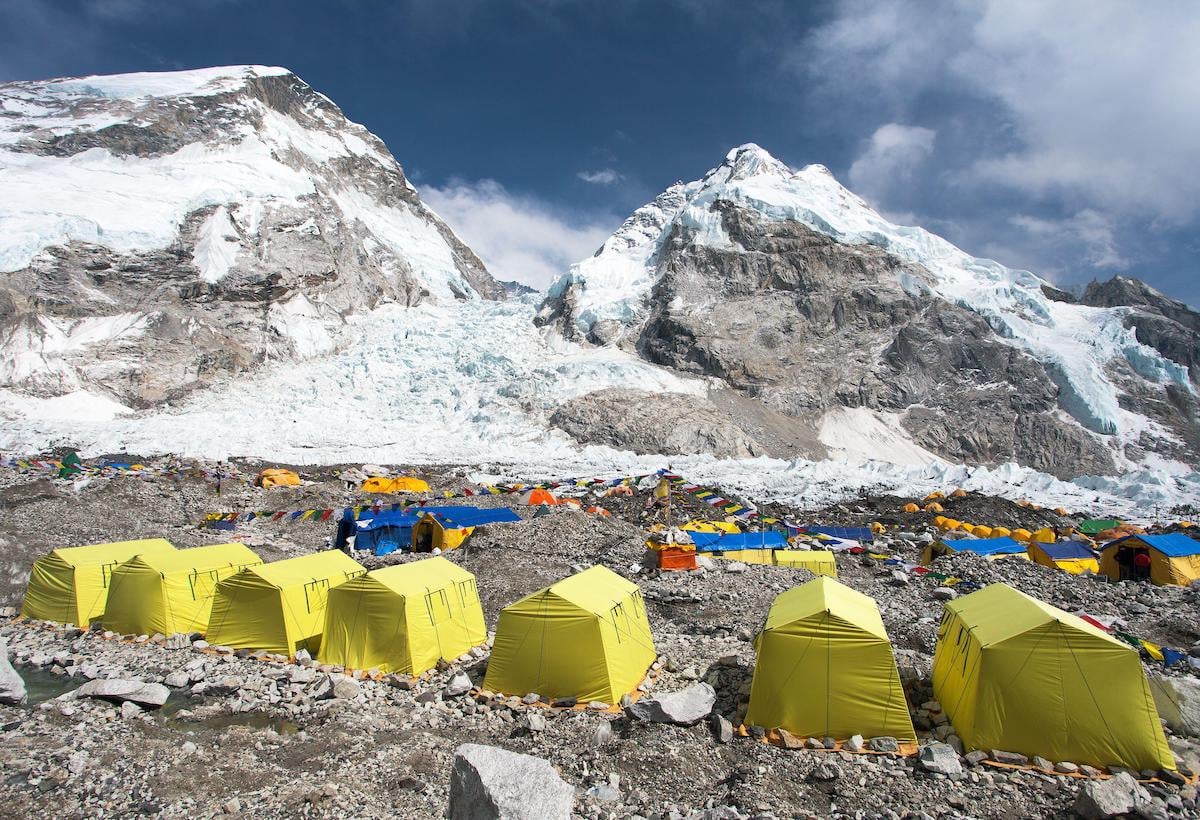Kathmandu: In a bid to strike a delicate balance between conservation efforts and expedition facilitation, local authorities in the Khumbu region have eased certain major restrictions imposed to curb luxury at the Everest Base Camp. The Khumbu Pasang Lhamu Rural Municipality has recently revised clauses in the newly promulgated Base Camp Management Procedure 2024 as the spring climbing season approaches.
Under the updated regulations, a 17-member committee, led by the Rural Municipality Chair, will oversee the implementation of new provisions. Notably, helicopters are now permitted to transport expedition logistics to the base camp, subject to clearance from the monitoring committee. Traditional means, such as local porters and yaks, are still encouraged for transporting climbing gear under normal circumstances.
The revised guidelines allocate specific space at the base camp, with each person allowed 60 square feet for dining and 80 square feet for sleeping quarters. Commercial ventures like bars, spas, bakeries, and cafes within the base camp are strictly prohibited. Climbers above the base camp must carry a poop bag or biodegradable bag for waste disposal.
While overnight stays are generally barred for trekkers and general visitors, exceptions are made for specific groups, including family members, relatives, well-wishers, friends, medical personnel, base camp managers, and sponsors of expedition members.
Each expedition team, comprising a maximum of 15 members, can enlist as many high-altitude and base camp workers as needed. The regulations also specify that no attached toilets will be allowed inside tents, but each expedition is permitted to set up a limited number of toilet, shower, and urinary tents.
Additionally, the base camp will have three helipads designated solely for rescue and evacuation purposes above the base camp. An instant check-in-out system will be adopted to track climbers’ status, and expedition teams are required to register an inventory of essential logistics needed above the base camp.
Furthermore, expedition agencies are responsible for retrieving the bodies of their members, obtaining a ‘Garbage Clearance Letter’ only after proper recovery and waste disposal. The regulations emphasize the mandatory use of new ropes while fixing climbing routes and stipulate that teams ascending Everest, Lhotse, and Nuptse must bring back a minimum of eight kilograms of garbage per member.
